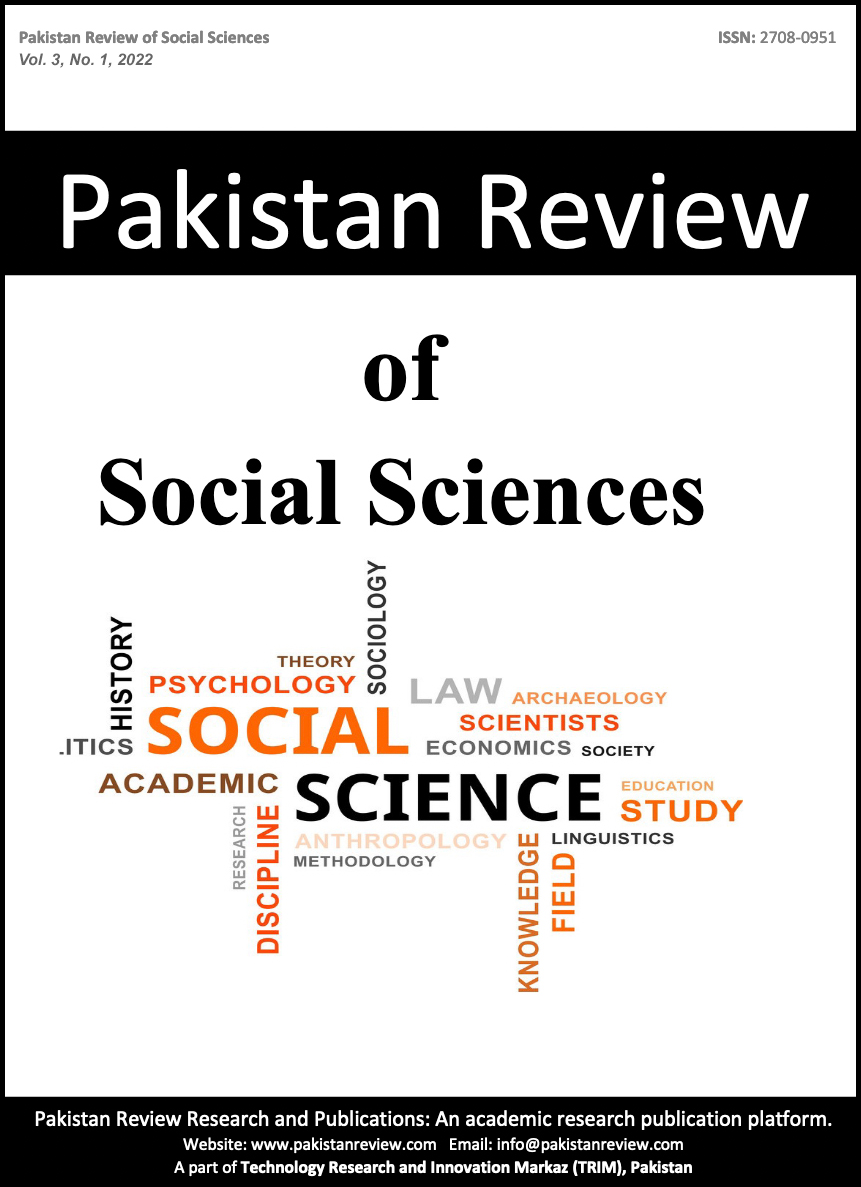Exploring Religious Scholars Perspectives on Child Physical Abuse: A Case Study of District Malakand
Abstract
Abstract
Child physical abuse is a significant global concern, and its prevalence varies across cultures and societies. This case study focuses on District Malakand, exploring the perspectives of religious scholars on child physical abuse. The study is qualitative in nature, utilizing purposive sampling to select 10 religious scholars as respondents. Islamic teachings emphasize the protection and welfare of children, promoting kindness and mercy. While Islam does not support physical punishment, some mild forms of discipline are allowed under specific circumstances. The findings reveal that religious scholars and teachers are not in favor of physical abuse due to its negative psychosocial impacts on the child's development. The study sheds light on the need to eradicate physical abuse from educational institutions and homes to create a nurturing environment for children in accordance with Islamic teachings.
Keywords: Physical Abuse, Child, Islamic, Malakand, Punishment
Downloads
Published
Issue
Section
License
Copyright (c) 2023 Irfan Ullah, Sher Shah; Hamid Alam, Sibgaht Ullah

This work is licensed under a Creative Commons Attribution 4.0 International License.
Submission declaration
Authors retain the copyright to their work and grant the Pakistan Review of Social Sciences (PRSS) the right of first publication under a Creative Commons Attribution 4.0 International (CC BY 4.0) license. This license allows others to share, adapt, and reuse the work for any purpose, including commercial use, as long as appropriate credit is given to the original authors and the journal.
By submitting a manuscript, authors confirm that the work has not been published previously (except as an abstract, lecture, or academic thesis), is not under review elsewhere, and has been approved by all authors and relevant authorities. Once accepted, the article will be openly accessible under the CC BY 4.0 license, ensuring wide dissemination and reuse with proper attribution.






